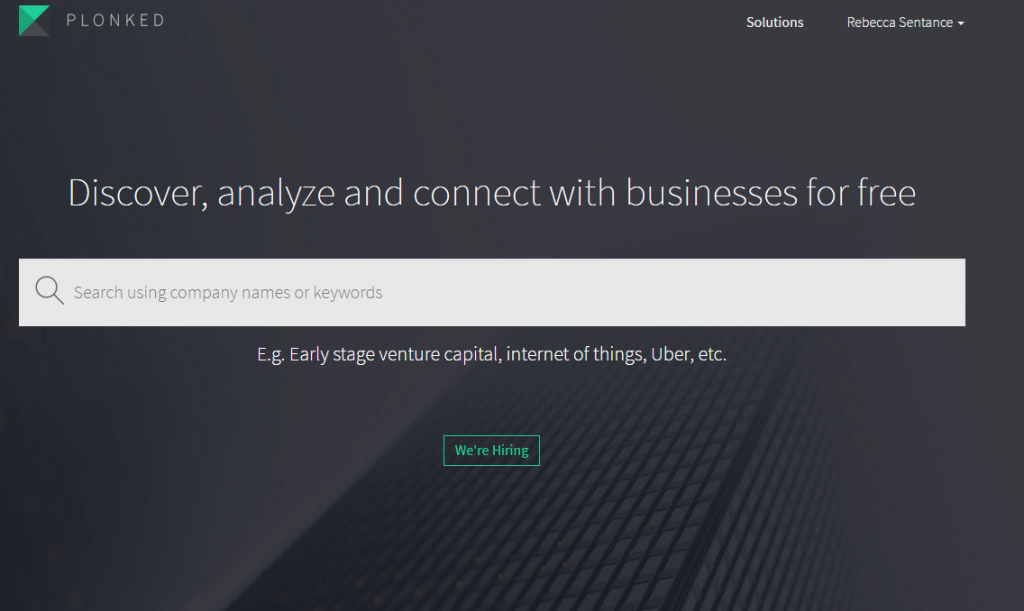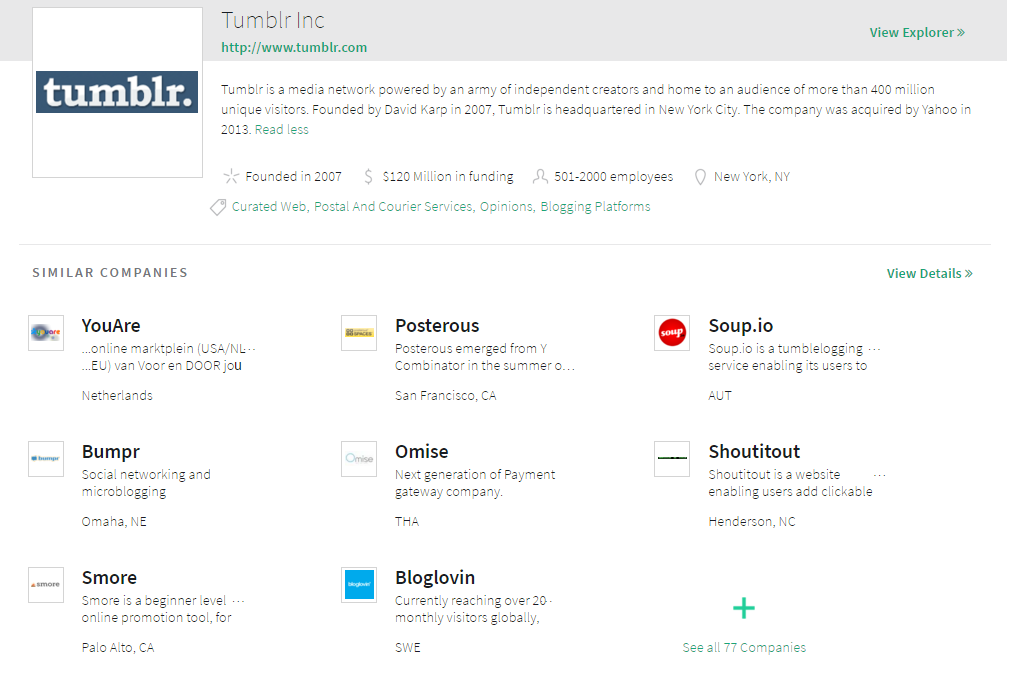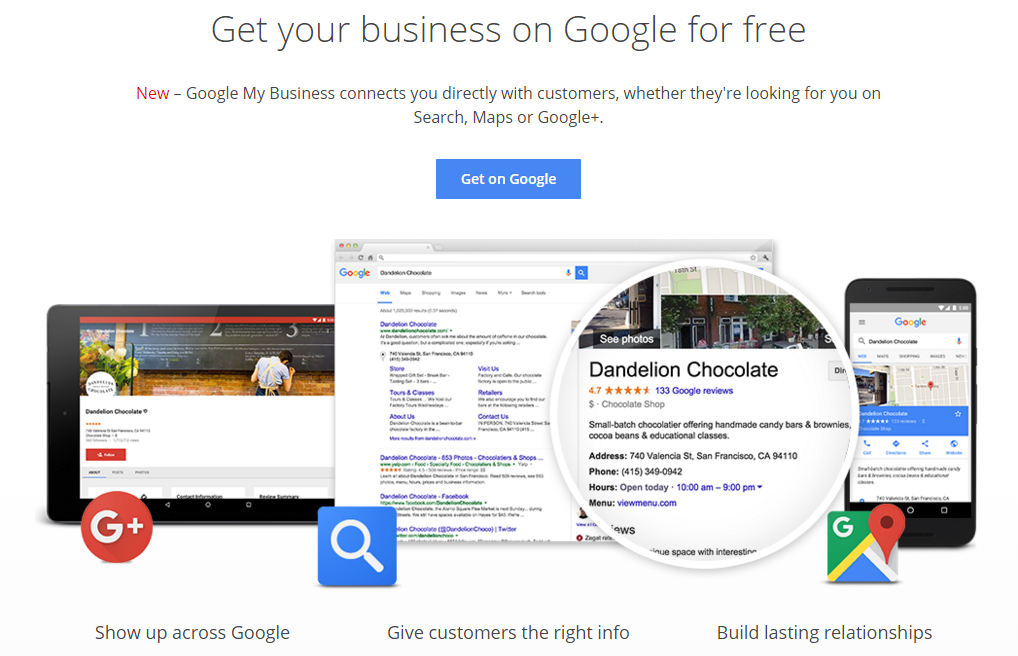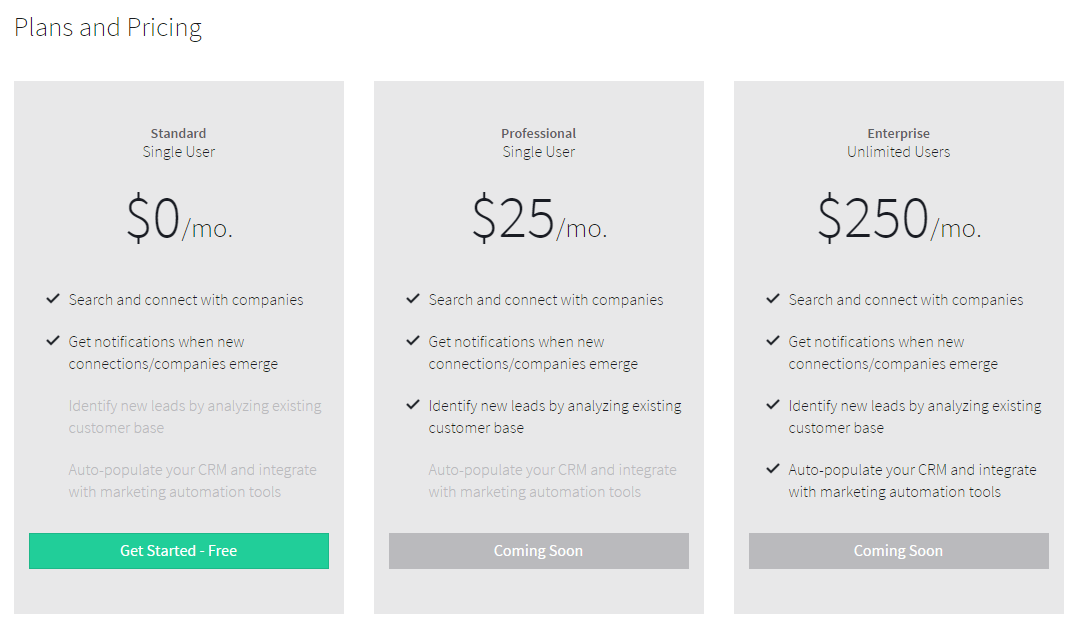Earlier this month came the launch of a brand new search engine dedicated to providing in-depth insights into the business world. Its name? Plonked.
In the world of search, even dominated as it is by giants like Google and Bing, there’s still room for a small organisation to do something new, and do it well. Enter Plonked, a niche search engine focused on providing information about businesses.
Plonked was co-founded by Ankur Varma and Josh Atir, both residents of the San Francisco Bay Area with a wealth of experience working in technology and software. The idea for Plonked was born out of conversations with sales teams about their work process and methods of discovering new leads, which led to the realisation that the tools they used for discovering companies – including Google – were either outdated or not detailed enough.
“Google’s done an amazing job when you think about categorising the web; there’s your tab for images, your tab for news, videos, and so on; but there isn’t an equivalent thing for businesses,” said Varma, the co-founder and CEO of Plonked.
“There’s no way I can click on Google and say ‘Just show me the businesses that meet this criteria, this location, this size, this kind of a business profile’, and so on. So we set about building that out.”
Poking around Plonked
At first look, Plonked is a slick, well-designed and aesthetically pleasing search engine, without a lot of confusion or clutter. I had a poke around its features, and found it easy to use. The homepage invites you to search using company names or keywords, like ‘Uber’ or ‘Internet of things’, although Plonked’s goal is to provide users with a natural language interface, which can respond to queries in everyday language.
“We don’t want people to have to go and learn about industry codes,” Varma explained. “We want people to be able to come and ask questions the way they would ask in Google.”
At the moment the search engine seems to respond mostly to keywords, and a change in wording can affect the results a lot. A search for ‘Internet of Things’ versus ‘Internet of Things companies’ brings up two completely different lists of companies, with only a couple of results in common.
But Plonked only launched to the public a little over two weeks ago, with a beta period of about two months before that; there will be plenty of time for improving its algorithms. The team is keen to learn from and adapt to the way that people use their engine.
“As we get to look at the kinds of queries people are doing, we’re making our engine smarter,” said Varma.
“We’re seeing the kinds of terms people are using to search for companies, and that’s helping us to make sure the machine learning algorithms underneath the search engine are tuned to recognise these kinds of words, and all variants of these kinds of words.”
Plonked is currently pretty narrowly focused on technology businesses within the United States, so unsurprisingly, a search for our parent company Contentive yielded no results. Instead I decided to have a look at the search results page for Tumblr, Inc.
The top section does a good job of summing up the essentials about Tumblr as a company, though I can’t comment on the accuracy of the funding figure. I did find the ‘Postal and Courier Services’ tag to be an odd inclusion, but Varma told me that the tags are added automatically to a company’s page when Plonked crawls the web for information about them, although users can also add and edit tags themselves.
“The idea here is to use tags in lieu of SIC or NAICS codes [codes for classifying a firm’s primary business activity] for search and filtering,” he said. “We believe that tags are more meaningful than industry codes. Shortly, we’ll be adding an advanced search feature where users can narrow the search results based on tags.”
Plonked fetched 77 companies which were ‘similar’ to Tumblr, a multi-layered process which involves not just looking at which companies fall into the same categories, but also how their founders and employees are connected on social networks, company websites and sites like Github.
In ‘Explorer’ view, users can see the connections between companies mapped out visually, with different coloured lines representing different relationships such as partnerships, customer companies and so on.
Further down the page is the Tumblr ‘leadership team’, a list of those in charge of the company which is for some reason sorted alphabetically by first name; it strikes me that something like sorting by hierarchy would be a bit more useful here.
If you’ve signed up to an account with Plonked (which has to be done with an existing Google or Microsoft account), the search engine will use your contacts to personalise search results, showing you how you connect with that company. One or two other features, such as viewing and subscribing to news updates about a company, are also not available without an account.
I asked Varma whether that might not put some people off, needing to share personal information before they can access Plonked’s full features.
“We have the option to not give up any contact information,” Varma assured me. “Many of our users choose not to share any contacts, and some choose to share contacts. It’s really up to them – and even if they share contacts on day one, if they don’t feel comfortable about it, they can wipe out all their contacts perfectly fine.”
On the theme of privacy concerns, and because Varma had mentioned that the search engine was able to learn from its users’ search queries, I asked how long the company was planning to store data from users’ searches. Varma admitted that they hadn’t considered that question yet.
“Honestly, I don’t know how long we plan to store it; for now we’re storing it indefinitely. But I can imagine that gets outdated pretty quickly. We’ll have to see as we keep exploring.”
It’s hard to talk about a search engine without talking about search engine optimisation, and Plonked is no exception to that rule. As I explored the site, I couldn’t help but wonder: is there such a thing as Plonked SEO? How can companies optimise their web presence for Plonked, if they want to? I put the question to Varma during our conversation.
“Yeah, we’re actually working on a document that defines what that would be for us, and how that would help companies do a better job,” Varma confirmed. “It’s certainly a very, very important topic, and something that we’re just getting our heads around to help companies get past that stage.”
 Image by Tumisu on Pixabay
Image by Tumisu on Pixabay
Where no search engine has gone before
Niche search engines are certainly nothing new on the web, and countless niche engines have sprung up over the years only to die away or be absorbed into another company a few years later. Varma acknowledged this trend, but he also sees Plonked as having been created to solve a very complex and necessary problem, and the company still has a lot of work ahead of it to tackle that gap in the market.
“If you think about where we are today, we’re less than a year old. We’re getting to a point where we’ve done a decent job with search for tech companies in the US. We’re expanding to all companies in the US within the next six months, and then from there we’ll be expanding to Europe, from there we’ll be expanding to other parts of the world… I mean, we have a long ways to go, and this is because it’s a very, very large problem.
“We’re at a point where more and more businesses are going digital, which definitely helps, but we also know that there’s a very large task ahead of us to organise the data about businesses across the world.”
It’s a task that, so far, no other company seems to be tackling in quite the same way that Plonked is – including major search engines like Google and Bing. Aside from a couple of fairly small ventures like Google My Business, Google has left the business world noticeably untouched. But even if that were to change, Varma is optimistic about Plonked’s ability to compete.
“When I think about somebody like Google getting into the space that we’re in, obviously it’s scary,” he laughed. “I know that they’re very capable of doing exactly what we’re doing.
“Having said that, I think one of the advantages we have is that we’re a small company; we’re very hyper-focused on what we’re doing. And I think that even if Google and others do get into the space, we have a winning solution where we can actually get ahead of the curve.”
Plonked’s founders are adamant that the basic search engine should be free for everyone to use, but the company has a number of different revenue streams it could explore. A subscription model is due to roll out which would make additional features available depending on the level of subscription. They also haven’t ruled out the search engine go-to, advertising.
“I think it’s a potential revenue stream; what I don’t want is, I don’t want to compromise the integrity of the search based on any financial factor. I want people to come to us because they trust our result, and not be inundated with advertising.
“If we can get to some sort of balance, absolutely, we would consider it; it’s just not something that’s top of mind for us right now.”
We’ve done a lot of looking quite far into the future for a very new search engine, but what are the immediate next steps for Plonked? Number one priority, said Varma, is to improve the relevancy of the results. “We’re a search engine; a search engine that doesn’t have good relevancy is useless, in my opinion.” 
I stumbled across one or two of these issues myself when testing out the search engine; for example, Plonked has two separate pages for the 3D printing company MakerBot, each with slightly different information, though they still seem to refer to the same company.
I also noticed that the page for Google, Inc. doesn’t reflect that Google’s parent company is now Alphabet, Inc.; while there is an Alphabet, Inc. listed on Plonked, but the page belongs to an advertising agency.
Still, no search engine is going to be perfect just a few weeks after public launch.
Second on the company’s priority list is adding to business health metrics, allowing users to search for and acquire results according to more specific criteria about a company’s state, such as its level of media traction.
The third priority is to expand to all companies in the US and then beyond – something that I, as a UK user, am definitely looking forward to.
What’s in a name?
After properly exploring Plonked and understanding more about what the search engine sets out to do and where it’s going, I have to say that I’m impressed with it. As someone who doesn’t work in sales, investing or anything much to do with business, I didn’t expect to find it useful, but I really like the feature which allows me to subscribe to news updates about a company – great for article ideas and up-to-the-minute industry developments.
Though as I said, I’m looking forward to when Plonked expands beyond the US tech sector and I can start looking at companies which are a bit closer to home.
But I’ve ignored the elephant in the room for long enough. That name. I’m not sure if Plonked’s American founders realise just how funny it sounds to those of us who are from the UK (and beyond – I have an Australian friend who also found it pretty hilarious).
The name apparently originates from some of the founders’ initial conversations with people in the sales industry and the difficulties they experienced while working with lead generation companies. As Varma told Network World, “One guy specifically said that he plonked down a ton of money with high hopes, which were never met. The word ‘plonked’ stayed with me … After some Google searches for domains, we decided to go with it. It was whimsical, catchy and different.”
Well, it certainly is different. After several days of researching and testing out Plonked, during which I dropped the name into conversation with various different people, it never failed to get a reaction of some kind, usually a double-take or a laugh. It’s a very satisfying name to pronounce out loud. But I think Chris Matyszczyk from Technically Incorrect described it best when he wrote:
“Plonked has a certain onomatopoeia that suggests the noise of a cell phone disappearing into a toilet bowl.”
Maybe a rethink of the name will be in order when Plonked expands internationally. But for now, it’s definitely a memorable brand.
The article A first look at Plonked, the new search engine for business was first seen from https://searchenginewatch.com






No comments:
Post a Comment